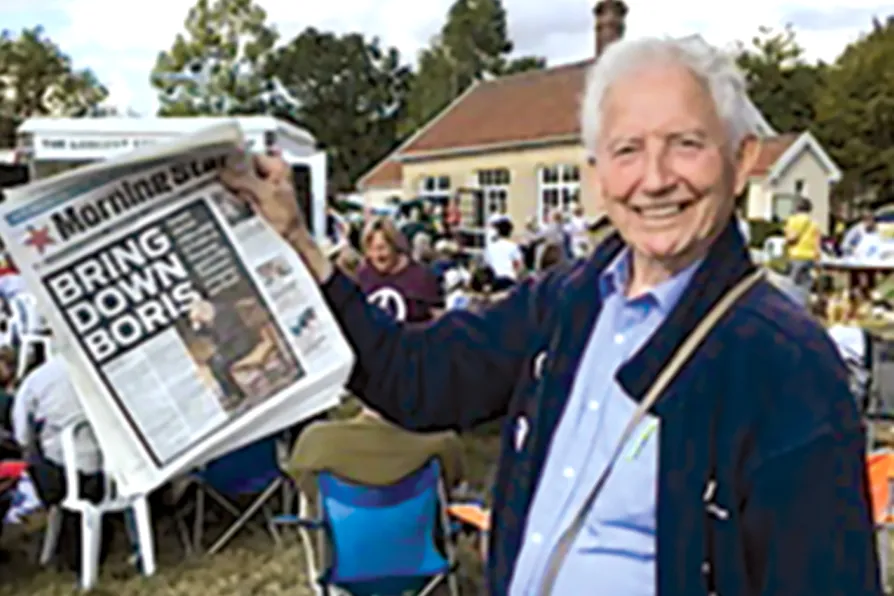SOLOMON HUGHES reveals how six MPs enjoyed £400-£600 hospitality at Ditchley Park for Google’s ‘AI parliamentary scheme’ — supposedly to develop ‘effective scrutiny’ of artificial intelligence, but actually funded by the increasingly unsavoury tech giant itself
Error message
An error occurred while searching, try again later.George Frederick Wills (12/06/1927–20/05/2025)

 George Frederick Wills / Pic: Author supplied
George Frederick Wills / Pic: Author supplied
BORN at the Salvation Army Mothers Hospital in Hackney, George was the seventh of eight children born to Emily and Alfred Wills in Rainham, Essex.
Growing up near farms and an air base during WWII, he left school at 14 to work in a factory, where he had his first encounter with trade unionism.
When his wages were unfairly docked by a penny, his colleagues staged a walkout — securing justice for him and planting early seeds of his lifelong belief in collective action.
At 18, George was conscripted into National Service, serving in Ireland, Egypt, and Palestine. The brutality he witnessed — bullying by officers, racism toward local populations, and the stark reality of British colonialism — shaped his commitment to fairness and anti-imperialism.
After his discharge, he worked with his brother Dick as a window cleaner, traveling by motorbike and sidecar.
A pivotal moment came in 1948 on Dagenham Heathway, where he defended a communist petitioner, Len Lowe, from an aggressive couple. This led to George meeting Tom Stapleton, a lifelong friend, and attending a speech given by Harry Pollitt at the Royal Albert Hall.
On November 11 1951, he joined the Communist Party.
He married Joan in June 1953, and they became a formidable political partnership. Employed at Briggs Motorbodies (later Ford Dagenham), George organised a Communist Party branch there, selling the Daily Worker despite management threats.
When Ford banned sales at the gates, he hung papers visibly at his workstation, inviting donations. Amid Cold War tensions, hostility followed him — once, a noose was hung above his workspace.
Fatherhood deepened his resolve. His children, born in 1962 and 1964, were raised in activism, attending protests (even in utero) and learning slogans from his shoulders.
The family home hosted Morning Star fundraisers—bazaars, garden fetes, and summer schools — welcoming neighbours and comrades alike.
After Ford dismissed him, George returned to window cleaning, losing clients whenever his activism made local headlines. A particularly brutal backlash came after he heckled Tory councillors over Thatcher’s cuts to free school milk.
Violently assaulted, and misrepresented by the press, he remained undeterred. A friend later secured him work at a print firm, where he again formed a party branch before retiring — though ”retirement” was never idle.
For George, employment was a means to sustain his family and the struggle. Joan’s unwavering support was vital, balancing work, childcare, and activism.
His raison d’être was the communist cause and the Morning Star, through which he championed peace, solidarity, and socialism until the end.
George’s legacy is one of courage, conviction, and an unyielding fight for justice. He is survived by his children, comrades, and a world shaped by his relentless belief in a fairer future.









